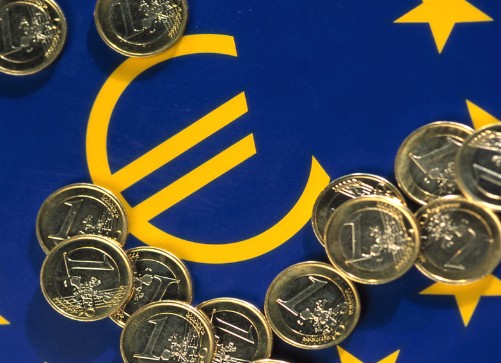 Credit: European Commission
Credit: European Commission
Eurozone Reaches Preliminary Deal With Greece
After a week of tense negotiations, the finance ministers of the Eurozone have managed to carve out a preliminary deal with Greece. Previous attempts by Greece to renegotiate the terms of their bailout program failed last Monday, causing extra pressure to assure an agreement on the extension of the bailout program by the end of last week. Failure to do so would have brought an end to the financial support to Greece by the so called ‘Troika’ – the European Central Bank, the European Union Commission and the International Monetary Fund – at the end of this month.
Greece’s Prime Minister, Alexis Tsipras, had been vying for an end to the austerity conditions that came with the original Troika-program. He originally opted for a six month transitional period in which Greece could renegotiate the terms of its loans with its main creditors, asking for more time to pay back his country’s debts and put a halt to the EU’s political and tax reform requirements.
Eurozone leaders refused to accept these terms, and a second proposal – in which Greece tried to accommodate some of the Eurozone’s concerns – was struck down by Germany last Thursday. Germany’s tough stance on the continuation of the pre-existing austerity requirements cast a shadow on what was otherwise received as a sign by Greece that it was willing to show movement in the negotiations.
On Friday Greece, Germany and other skeptical Eurozone members managed to compromise on certain key issues. All parties agreed on a draft text proposal that would extend the current bailout program by another four months, as opposed to the six months that Greece originally sought after.
President of the Eurogroup, Dutch finance minister Jeroen Dijsselbloem, called the agreement “an important first step in rebuilding trust,” and “a very positive outcome.”
However there is a catch to the draft text proposal; it demands from Greece that it hands over a list on Monday that specifies how it will implement certain reforms in the coming months. For example how it will counter the ubiquitous evasion of tax within its borders, fight corruption, and reform its dysfunctional system of public administration. This list needs to be approved by all members of the Eurozone in order for the bailout program to stay in effect. In Germany and the Netherlands, amongst others, Greece’s list of reforms needs to be approved by their national parliaments.

1 Euro Coins. Image Credit: European Commission
As ASP has reported before, Tsipras made several daring promises to his electorate during his election campaign and vowed to rid the country of the Troika’s austerity regime. His government’s public support largely depends on what it negotiates with its counterparts in the Eurozone. It seems Tsipras has not been able to deliver on many of these promises yet.
Contrary to his electoral slogans, Greece pledges to recommit itself to the conditions of the bailout program under the auspices of the Troika and promises it will not unilaterally roll back any spending cuts that were part of the original program. Still, he is confident that he will deliver, speaking to the Greek people on Saturday in a televised address, “Yesterday we made an important step, leaving austerity, the bailout deal and the troika behind us. A decisive step for a change of course within the Eurozone,” concluding that “we’ve won a battle, but not the war.”
Rhetoric aside, Tsipras is to be commended for daring to compromise on his political stance, show leadership and help avert a Grexit (Greece exiting the Eurozone). He also secured a relaxation of budget requirements, providing his government with more leeway to get its budget organized. As opposed to earlier arrangements, the draft agreement now allows for the Greek budget surplus to go below 3% in case of an unforeseen economic downturn.
Friday’s agreement is an important step towards more consensus within the Eurozone, with both sides chipping in a little, but considerable barriers remain. Restoring mutual trust amongst Eurozone countries will be one of them. The coming week will show whether the new agreement elicits enough trust in Greece’s commitment to comply with the requirements of the bailout program for it to definitively continue as of February 28th.






[…] Eurozone Reaches Preliminary Deal With Greece […]
[…] ASP has reported before, the disagreements amongst the Eurozone’s pro-austerity camp and the leftist course taken by […]